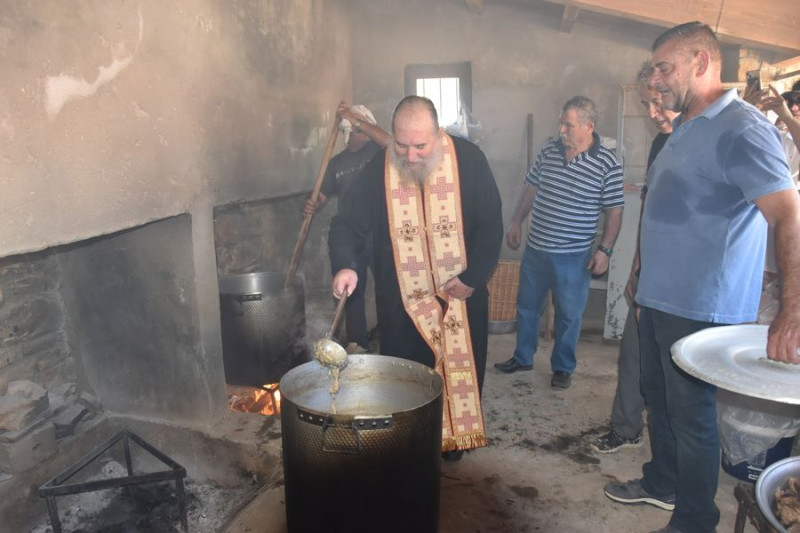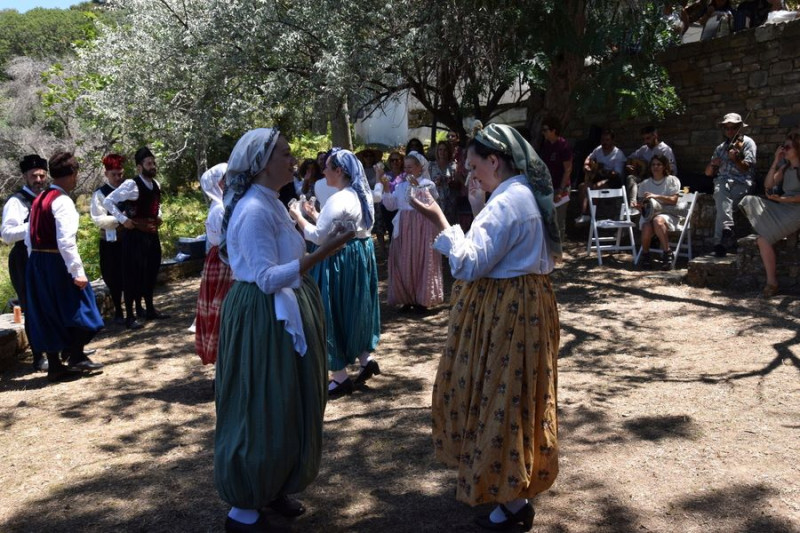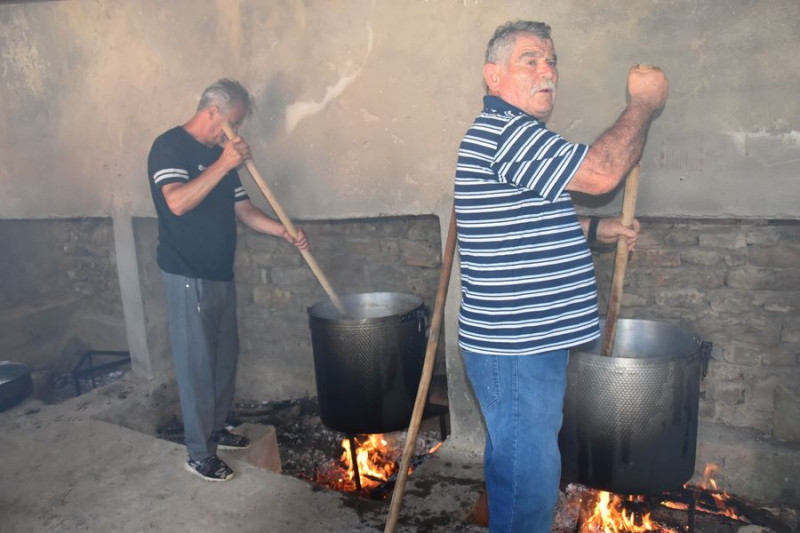Widespread joy and emotion in the revival of the “Kurbani” custom
The small church of Agioi Anargyro celebrated as before, a few days ago in Imbro. On the day of his celebration, Romans, locals and visitors rushed to the festival – but also Turks who call the place “doctor manastir” (the doctor’s monastery) – to honor the memory of the Saint doctors who offered their services selflessly.
The small church, two steps from the capital of the island, Panagia, was maintained and decorated as in the good old days for the island, more than half a century ago.
Revived the custom of “Kurbani”
Joy and emotion were widespread, to all who filled the space where they relived the customs with the “sacrifices”, the animals slaughtered for the grace of the Saints, which boiled all night in cauldrons to be offered in the morning together with the ” batter’, boiled cracked wheat and other grains – a descendant of the ancient polyspora in honor of the goddess Demeter and her daughter, Persephone, to the pilgrims.
78-year-old Dimitris Pseutelis from Panagia, was the head of the group, the “chief priest” of those who spent many hours cooking the banquet meal offered to the pilgrims. “The celebration had been due for years and this year our Despot said to revive it. I’ve been having problems with my legs these days but I couldn’t say no to this joy,” says Mr. Pseutelis to APE BEE, referring also to the initiator of the revival of the festival, the Metropolitan of Imbros and Tenedos, Mr. Kyrillos.
And the joy of the “chief priest” is obvious. Despite the problems with his legs, he runs among the people with bottles of tsipoura treating everyone. “And next year, let’s be strong…” he shouts in every direction as if exorcises evil.
The Metropolitan of Imbros and Tenedos himself is happy, of course, as he connects his presence on the island in recent years with the effort to revive the presence of Romaikos, which is also protected by the Treaty of Lausanne.
“We are putting into practice, he tells APE-MPE, the orders of our Patriarch Mr. Bartholomew to support the Christian community of the island and its peaceful coexistence with the common element. And today’s celebration also has this goal. To keep our traditions. Let those of us who live in Imbro rejoice in our reunion with the Imbrians of the diaspora who return to spend the summer, to enjoy their place, their customs and traditions again. The people of Imbrio can and must experience the island and its culture together.”
The preparation
In the meantime, together with the consecration in the outside area of the small church and then the divine service inside its preserved area, the preparation of the food proceeds.
The meats are cooked, strained and placed in wooden vessels on towels to dry. After the juice is strained, it receives the broken grains. It’s batter time. After an hour of boiling, the mixture begins to be beaten with wooden tools, like paddles. The “chief celebrant” tests and notifies the Despot immediately after the distribution of the antigift that everything is ready.
The metropolitan in the parsonage where the food was prepared, between fires and inhaling smoke, wearing his petrachel, blesses the meats, the kurbans, beats the batter once more and gives the signal for the celebration.
The meats are divided separately from the batter. The latter confesses the novice to it, unknown why, is the tastiest thing he has tasted in his life.
The common banquet is completed by the offers of those who participate in it. Wines, rakia and tsipoura and all kinds of pies and above all musky baklavas and frozen watermelons!
And of course dances and songs. For the latter, this year, the “Aioleis”, a colorful group of about 60 Mytilenians, many of them of Asia Minor origin, took care of the latter, with a traditional orchestra, in which Timoleon Tsaknis, a local violinist who had been waiting to play with others for years, took care his violin, choirs and singers, and dances, kept the merriment undiminished for hours.
“We said to come to Imbros, the group’s dance teacher Argyris Hatzimalis, who was already celebrating that day, told APE-MPE, to celebrate with the locals but also to get to know our nearby island, its people, their sorrows and joys . I want to hope that we succeeded and for that we thank everyone who helped make this mission a reality.”
Late in the afternoon, after the last pilgrim has left, the metropolitan with his entourage, the priests of Panagia, locks the little church. “And next year… the silverless Saints help us. And remember us. We are staying here” he says, passing us.
Source: Skai
I have worked as a journalist for over 10 years, and my work has been featured on many different news websites. I am also an author, and my work has been published in several books. I specialize in opinion writing, and I often write about current events and controversial topics. I am a very well-rounded writer, and I have a lot of experience in different areas of journalism. I am a very hard worker, and I am always willing to put in the extra effort to get the job done.
















